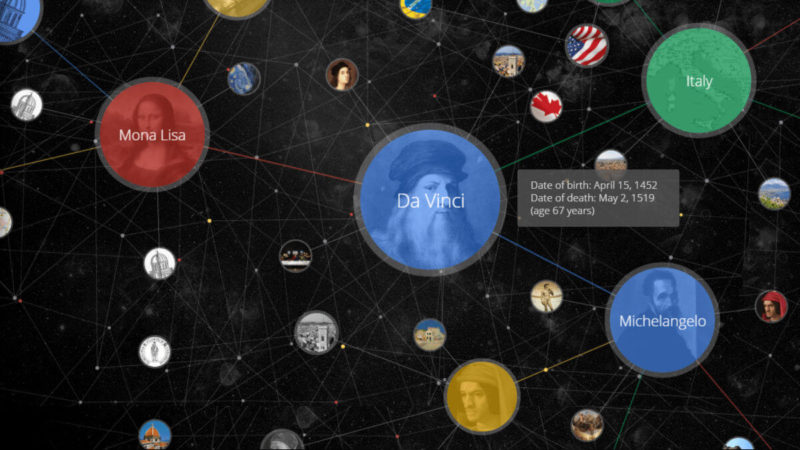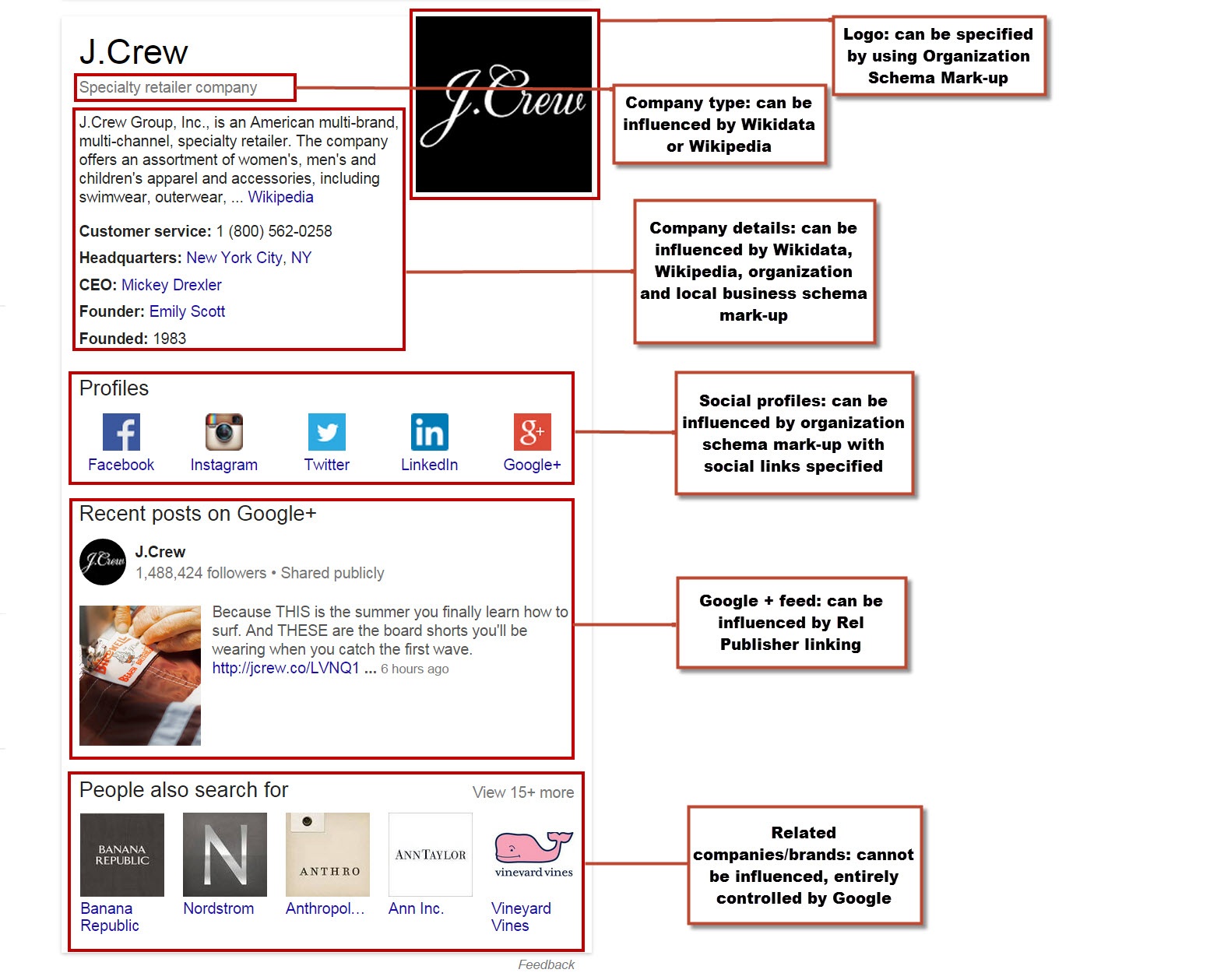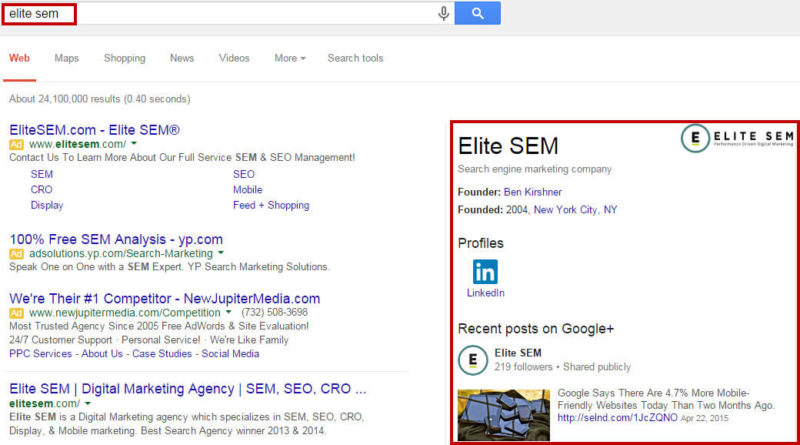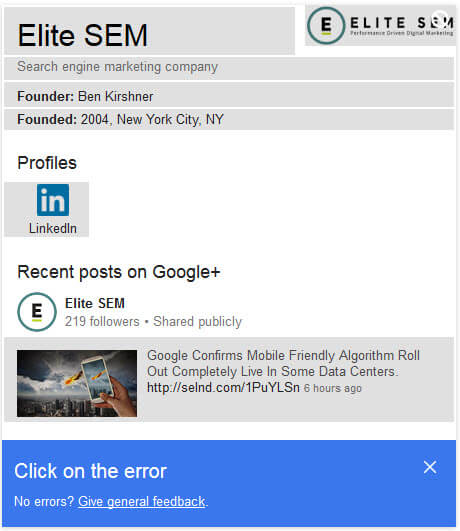Leveraging Wikidata To Gain A Google Knowledge Graph Result
Columnist Tony Edwards describes the process he uses to obtain and enhance Knowledge Graph panels in Google search results.

Back in December 2014, Google announced that it would be shutting down Freebase, a repository of structured data that helps power Google’s Knowledge Graph, and working to migrate all its data to Wikidata.
But how does Wikidata measure up? How can marketers leverage Wikidata to help a business become an entity and gain a Knowledge Graph result? I have personally had success with gaining Knowledge Graph entries for my clients and myself. Below, I have outlined the steps you can take to both gain and enhance a Knowledge Graph result.
Before getting into the steps, I want to break down the different elements of the Knowledge Graph. This will give you a better idea of how each element can be influenced, as Google does use different sources to power Knowledge Graph results.

Knowledge Graph Success
Here are two examples of Knowledge Graph results I was able to to gain. The first is for myself, and the second is for Elite SEM (my employer).


Steps To Gaining A Knowledge Graph Result
Here are the steps you can take to gain and influence Knowledge Graph results. I have personally tested and proven these methods.
1. Create a Wikipedia profile if you currently do not have one. (Note that you do not need a Wikipedia profile to become an entity and gain a Knowledge Graph entry, but it can definitely help.)
2. Create a profile on Wikidata.org if you currently do not have one. If you currently have a Freebase profile, be sure to reference it in your Wikidata profile using the Freebase Identifier element. (See an example here.)
3. Implement organization schema markup on your website (or, use person markup if you are doing this for an individual). Be sure to specify your logo, social profiles, Wikidata and your Wikipedia profile using the SameAs element. Google and Schema resource pages:
- https://googlewebmastercentral.blogspot.com/2013/05/using-schemaorg-markup-for-organization.html
- https://schema.org/Organization
- https://schema.org/sameAs
- https://developers.google.com/structured-data/customize/social-profiles
Example markup:
The organization schema markup can be implemented using the Microdata or JSON-LD formats.
Microdata
<div itemscope itemtype="https://schema.org/Organization"> <a itemprop="url" href="https://elitesem.com"> <img itemprop="logo" src="https://elitesem.com/wp-content/uploads/2014/03/Elite_SEM_Logo_2014" alt="Elite SEM" /></a> <a itemprop="sameAs" href="https://www.facebook.com/EliteSEM">Facebook</a> <a itemprop="sameAs" href="https://twitter.com/elitesem">Twitter</a> <a itemprop="sameAs" href="https://www.youtube.com/user/EliteSEMInc">YouTube</a> <a itemprop="sameAs" href="https://plus.google.com/+Elitesem">Google +</a> <a itemprop="sameAs" href="https://www.linkedin.com/company/elite-sem">LinkedIn</a></div>
JSON-LD
<script type="application/ld+json">
{ "@context" : "https://schema.org",
"@type" : "Organization",
"name" : "Elite SEM: Performance Driven Digital Marketing",
"url" : "https://www.elitesem.com",
"logo" : "https://elitesem.com/wp-content/uploads/2014/03/Elite_SEM_Logo_2014.png",
"sameAs" : [ "https://www.facebook.com/EliteSEM",
"https://www.twitter.com/elitesem",
"https://plus.google.com/+Elitesem",
"https://www.youtube.com/user/EliteSEMInc",
"https://www.linkedin.com/company/elite-sem"]
}
</script>
4. Implement Rel Publisher linking. Ensure your Google + profile is updated frequently with relevant information. This mark-up is usually placed in the header section of the site homepage.
Example markup:
<link rel="publisher" href="https://plus.google.com/+Elitesem/" />
Google resource page: https://developers.google.com/+/web/badge/
Knowledge Graph Issues
Google’s Knowledge Graph is not without its issues and flaws. Some of my clients experienced issues that required a bit of trial and error to resolve. I cannot disclose the client names, but here are the issues they experienced.
Client 1
This client’s Knowledge Graph result was heavily influenced by their Wikipedia profile. The Wikipedia profile was created a long time ago and lacked proper references. It was eventually flagged for not having proper references by a Wikipedia user and subsequently removed.
I worked with the client to identify quality references and resubmitted to Wikipedia. The Wikipedia profile was restored after two weeks; however, the client’s Knowledge Graph panel did not return. I then created a Wikidata profile for the client and had them insert the restored Wikipedia profile link in their organization schema markup on their site using the sameAs element. Once this was implemented, the client’s Knowledge Graph panel returned.
sameAs element example:
<a itemprop="sameAs" content="https://en.wikipedia.org/wiki/Client_Name">
Client 2
I helped this client gain a Knowledge Graph result in Q3 of 2014. However, due to a template issue on their website, they were unable to specify their logo in the organization schema markup.
In Q1 of 2015, the logo of a company with the same brand name started to appear in the client’s Knowledge Graph result. This, of course, had all the brand folks going crazy. I immediately started filing feedback reports in the SERP advising Google of the incorrect logo. I did this every day for a week, and Google finally updated the logo element with the correct image.
Reiterating to the client that is it important to specify your logo in the organization schema markup, the client is now working on making their logo accessible.
Example:
Clicking on the feedback link under a Knowledge Graph result allows you to flag incorrect content.
Final Thoughts
Please note that the steps above do not guarantee that you, your client, or your company will appear in Knowledge Graph results.
Google uses a variety of criteria to determine whether or not to display a Knowledge Graph panel for a given query, and the search giant has not publicly disclosed these criteria. However, by following the process above, you will greatly increase your chances of appearing in this coveted spot in the search engine results.
Contributing authors are invited to create content for Search Engine Land and are chosen for their expertise and contribution to the search community. Our contributors work under the oversight of the editorial staff and contributions are checked for quality and relevance to our readers. The opinions they express are their own.
Related stories

